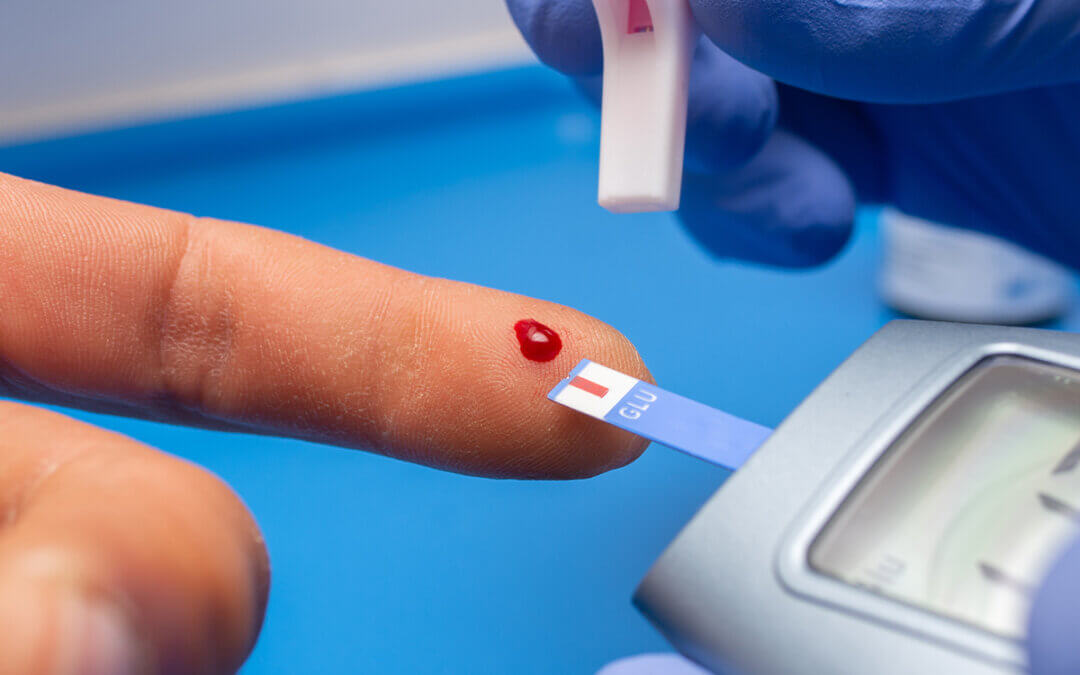Share this blog post with your friends
Diabetes can pose another health risk to individuals if not properly managed. Some of these complications include:
1. Cardiovascular disease
The risk of developing a heart disease or other heart-related issues is high when one has diabetes. High blood sugar levels can damage the blood vessels leading to the narrowing or hardening of the blood vessels which restricts the free flow of blood.
2. Neuropathy
Neuropathy is associated with the nervous system. Diabetes can lead to nerve damage in the body which can lead to pain, weakness, etc.
3. Retinopathy
Retinopathy has to do with eye complications. High blood sugar levels can lead to retinopathy causing eye problems like impaired vision.

Source: The eyecare group
4. Skin diseases
Diabetes can also lead to skin diseases such as dry skin, infection, delayed wound healing, etc.
5. Nephropathy
Nephropathy is associated with the kidney. The blood vessels in the kidney become damaged which can lead to other severe complications like kidney transplant, dialysis, etc.
6. Gum diseases
Diabetes can also lead to gum problems which can lead to loss of teeth.

Source: Aesthetic Dental Associates
7. Foot complications
Diabetes can damage the nerve or blood vessels around the leg. Other complications such as amputation, infection, etc, may arise.
8. Mental health issues
Having diabetes can have an impact on one’s life as it can be emotionally and psychologically draining.
MANAGING DIABETES THROUGH DIET
One major way to manage blood sugar levels can be regulated is through diets. Here are some dietary strategies that can be implemented:
- Be aware of Carbohydrate intake as it affects blood sugar levels directly.
- Eat balanced meals. Meals containing the necessary nutrients in the right proportion.
- Pay attention to food portions to avoid overfeeding or consuming too much carbohydrate.
- Limit the intake of sugar and carbonated drinks as too much intake can increase the blood sugar level.
- Eat food rich in fiber such as vegetables and fruits, legumes, etc. Fibers help in slowing down carbohydrate digestion, thereby regulating blood sugar.
- Always drink water to stay hydrated. Replaces carbonated drinks or sweet beverages with water.
- Regular checking of blood sugar levels is paramount.
- Consult a professional dietician who can help recommend meal plans to optimize treatment or prevent occurrence.
In conclusion,
Adopting a healthy lifestyle, and eating balanced meals can help regulate blood sugar levels. It is important to have a conscious approach to managing our well-being.

